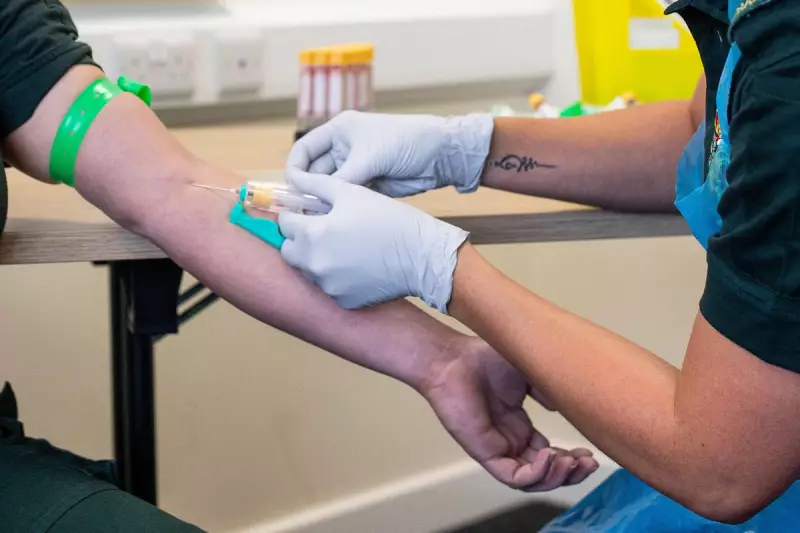
The National Health Service is embarking on what could be one of the most significant medical breakthroughs in decades - a simple blood test that can detect cancer signs years before symptoms typically emerge.
The Galleri Test: A Game-Changer in Cancer Detection
In an ambitious move that could revolutionise cancer care, the NHS has launched its largest trial yet of the Galleri test, developed by California-based company Grail. This innovative blood test has the remarkable ability to identify more than 50 different types of cancer, many of which currently lack reliable screening methods.
The trial represents a fundamental shift in how we approach cancer diagnosis, moving from reactive treatment to proactive detection. Unlike traditional screening methods that target specific cancers, the Galleri test casts a much wider net.
How This Revolutionary Test Works
The science behind this breakthrough is equally impressive. The test detects tiny fragments of DNA that tumours release into the bloodstream. What makes it particularly powerful is its ability to identify not just the presence of cancer, but also where in the body the disease is located.
Current NHS screening programmes only cover breast, cervical and bowel cancers. The Galleri test could extend this protection to cancers like pancreatic, ovarian and throat cancers, which are often diagnosed at late stages when treatment options are limited.
Major Trial Underway Across England
The scale of this initiative is monumental. The NHS is enrolling 140,000 volunteers aged 50 to 77 across multiple English regions to participate in this landmark study. Participants, who must not have had a cancer diagnosis in the last three years, will provide blood samples at mobile testing clinics.
This isn't just a scientific experiment - it's a practical assessment of how this technology could be integrated into routine healthcare. If successful, the NHS could roll out the test more widely as early as 2024, potentially preventing thousands of cancer deaths annually.
Real-World Impact and Potential
Early studies have shown promising results, with the test demonstrating particular strength in detecting harder-to-diagnose cancers. Research suggests it can identify cancers at their earliest stages, when treatment is most likely to be successful.
Professor Peter Sasieni, director of the Cancer Research UK and King's College London Cancer Prevention Trials Unit, emphasised the significance: "We need to study the Galleri test carefully to find out whether it can significantly reduce the number of cancers diagnosed at a late stage."
The potential benefits extend beyond early detection. By identifying cancers that might otherwise go undetected until advanced stages, this technology could not only save lives but also reduce the need for aggressive treatments and lower healthcare costs.
What This Means for the Future of Cancer Care
If the trial proves successful, we could be looking at a future where routine blood tests during NHS health checks include cancer screening as standard practice. This would represent one of the most significant advances in preventive medicine since the introduction of vaccination programmes.
The implications for patient outcomes are profound. Early detection dramatically improves survival rates across most cancer types. For some cancers, five-year survival rates can be three to four times higher when the disease is caught at stage one compared to stage four.
As the trial progresses over the coming months, the medical community and public alike will be watching closely. This could mark the beginning of a new era in cancer diagnosis - one where we're no longer racing against time, but staying several steps ahead of the disease.





